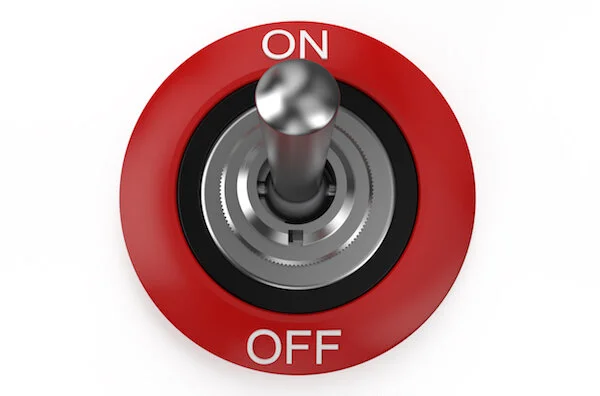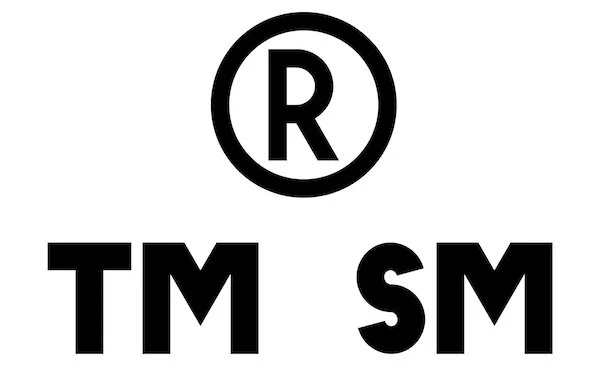Weekly IP Buzz for the Week Ending March 26, 2021
A summary of interesting developments in intellectual property, technology, social media, and Internet law for week ending March 26, 2021. Apple privacy labels. Could soon be easier to qualify for the patent bar.
In this week's post, we see that Apple is now requiring “privacy labels” to be attached to any mobile app being offered for download through their App Store.
Plus, the USPTO seeks to revise the eligibility requirements for qualification to take the patent bar, in an effort to help the efficiency of the application process.
What Are Apple Privacy Labels and How Transparent Are They, Really?
In the past few months, there's been a lot of sparring over new Apple privacy labels as they require companies that have apps in the Apple App Stores to comply with Apple’s new policy of disclosing to users what type of data they may be collecting on the user and whether that data can be linked to the user.
Since Apple rolled out these new privacy labels, many have likened Apple’s privacy label to FDA nutrition labels in that they show a user what kind of data-collecting “ingredients” are “packaged” into any particular app. Simply put, Apple touts its “privacy labels” as an easy way for users to quickly determine what kind of data may be collected on them when they use a particular app. In announcing this new feature, Apple stressed that privacy is a “fundamental right” and that “Apple’s ultimate goal” is transparency.
So how does it work? Read the article here.
It Could Soon be Easier to Qualify for the Patent Bar
On Tuesday, March 23, 2021, the United States Patent and Trademark Office (USPTO) published a Request for Comments to ask for public input of proposed changes to the General Requirements Bulletin for Admission to the Examination for Registration to Practice in Patent Cases Before the United States Patent and Trademark Office.
Three main categories are used to show eligibility:
Category A “Bachelor’s Degree in a Recognized Technical Subject”
Category B “Bachelor’s Degree in Another Subject”
Category C “Practical Engineering or Scientific Experience”
The proposed changes address the different categories for eligibility to sit for the Patent Bar.
Read the full article here, to see details on the proposed changes, and to access the link to make comments on the Federal Register website.
Click to read the previous Weekly IP Buzz on Thriving Attorney.
For more posts, see our Intellectual Property Law Blog.
--------
In addition to publishing Thriving Attorney, Darin M. Klemchuk is founder of Klemchuk LLP, a litigation, intellectual property, and transactional law firm located in Dallas, Texas. Click to read more about Darin Klemchuk's practice as an intellectual property lawyer as well as IP mediation services. For more on the latest developments in IP law, see Ideate blog and IP Questions Answered blog.
Weekly IP Buzz for the Week Ending March 19, 2021
A summary of interesting developments in intellectual property, technology, social media, and Internet law for week ending March 19, 2021. New Japanese cosplay copyright law.
In this week's post, we see that the Japanese government made waves by announcing that the popular hobby, cosplaying, would now be subject to Japanese copyright law.
New Japanese Cosplay Copyright Law Worries Enthusiasts
Japan shocked a large population of their country this year by announcing that the popular hobby of cosplay would now be subject to Japanese copyright law. As Japan is seen as the Mecca for cosplayers and has been known to use “cosplay ambassadors” in the past, this new announcement seemed ominous for cosplayers across the globe.
As a subculture, cosplayers run the gamut from young children wearing Halloween costumes to more serious cosplayers that may spend thousands of dollars and countless hours on recreating their costumes. The more dedicated and successful the cosplayer, the more they are able to become recognized and well-known in cosplay circles, leading to possibly securing endorsements or appearance fees for representing certain characters.
And this might be exactly why Japan decided that cosplay has crossed from being a harmless hobby to being potentially infringing behavior. And to the small subsection of people who know both the law and understand the subculture, the idea that cosplay could collide with copyright law is actually not that farfetched. Because cosplay undoubtedly relies on protected source material derived from popular cartoons, comic books, video games, and movies, it then follows that the characters that make the most popular subjects for cosplay are generally the most well-known (and lucrative) intellectual property of others.
Read the full article here.
Click to read the previous Weekly IP Buzz on Thriving Attorney.
For more posts, see our Intellectual Property Law Blog.
--------
In addition to publishing Thriving Attorney, Darin M. Klemchuk is founder of Klemchuk LLP, a litigation, intellectual property, and transactional law firm located in Dallas, Texas. Click to read more about Darin Klemchuk's practice as an intellectual property lawyer as well as IP mediation services. For more on the latest developments in IP law, see Ideate blog and IP Questions Answered blog.
Weekly IP Buzz for the Week Ending March 12, 2021
A summary of interesting developments in intellectual property, technology, social media, and Internet law for week ending March 12, 2021. Discord platform targeted by patent troll.
In this week's post, we see that the Discord platform, popular for gaming fan messaging, has been targeted by a patent troll and faces multiple claims of patent infringement.
Discord Sued by Patent Troll
Last week brought bad news for gaming fans of the popular messaging platform, Discord. In a case filed on February 26, 2021, patent troll, Coretek Licensing, LLC. sued Discord, Inc., the company behind their popular eponymous messaging platform, Discord. In the lawsuit, Coretek alleges that the Discord platform has infringed upon multiple patents they own, specifically patents that cover wireless networking technology.
Read the full article here.
Click to read the previous Weekly IP Buzz on Thriving Attorney.
For more posts, see our Intellectual Property Law Blog.
--------
In addition to publishing Thriving Attorney, Darin M. Klemchuk is founder of Klemchuk LLP, a litigation, intellectual property, and transactional law firm located in Dallas, Texas. Click to read more about Darin Klemchuk's practice as an intellectual property lawyer as well as IP mediation services. For more on the latest developments in IP law, see Ideate blog and IP Questions Answered blog.
Weekly IP Buzz for the Week Ending March 5, 2021
A summary of interesting developments in intellectual property, technology, social media, and Internet law for week ending March 5, 2021. Virginia’s new stringent consumer privacy law in effect in 2023.
In this week's post, we see that Virginia has a new consumer privacy law that grants new rights to consumers regarding their personal data.
The Virginia Consumer Data Protection Act Will Go Into Effect in 2023 – Businesses Must Be Prepared to Comply
Virginia is poised to become the second state in the United States to pass a comprehensive privacy law that can rival the European Union and California’s privacy laws. The new privacy law in Virginia does not take effect until January 1, 2023, which will give companies operating out of Virginia plenty of time to comply or decide whether they want to move out-of-state.
The Virginia Consumer Data Protection Act protects consumer privacy rights in much the same manner that the California Consumer Privacy Act (“CCPA”) passed in California in 2018 does. For instance, it grants consumers in Virginia new rights in regard to their personal and sensitive information, which includes for example, the right to know, the right to delete, the right to correct, and the right to opt-out. It also requires companies to disclose information and responds to consumer-inquiries regarding their personal information. Under the Virginia Consumer Data Protection Act, consumers have the right to know whether their personal data is being processed by a controller. Likewise, consumers will be able to request a copy of their personal data under the new law.
Read more here.
Click to read the previous Weekly IP Buzz on Thriving Attorney.
For more posts, see our Intellectual Property Law Blog.
--------
In addition to publishing Thriving Attorney, Darin M. Klemchuk is founder of Klemchuk LLP, a litigation, intellectual property, and transactional law firm located in Dallas, Texas. Click to read more about Darin Klemchuk's practice as an intellectual property lawyer as well as IP mediation services. For more on the latest developments in IP law, see Ideate blog and IP Questions Answered blog.
Weekly IP Buzz for the Week Ending February 26, 2021
A summary of interesting developments in intellectual property, technology, social media, and Internet law for week ending February 26, 2021. Robinhood trading app controversies. Supply chain distributors and dealers.
In this week's post, we see that the Robinhood trading app has courted controversy recently due to its role in the volatile trading of GameStop and a suicide by a college student who blamed the app for his death.
Plus, while the terms distributor and dealer are often used interchangeable, in reality, there are some differences between the two in regard to responsibilities and sales requirements.
Robinhood Gets Scrutinized by Congress and Gets Hit with Wrongful Death Lawsuit
In a previous blog post, we briefly discussed Robinhood’s background and how its entry into the trading section affected its competitors. In this post, we discuss the current controversies that surround the trading app. Specifically, Robinhood has found itself embroiled in controversies that involve the premature cessation of GameStop stock trading as well as a wrongful death filed against it.
Read the full article here.
Distinguishing Between Distributors and Dealers
While the terms “distributor” and “dealer” are often used interchangeably to describe one who purchases products from a manufacturer and sells the products to the public, there are distinct differences between the two roles, as each refers to a specific part of the common supply chain.
A distributor is the initial position on the supply chain. Typically, a distributor is either a representative or agent of the manufacturer and has entered into an exclusivity agreement with the manufacturer that covers a large territory. Distributors purchase products from a product manufacturer and either sell the product in smaller quantities to dealers or, in some cases, directly to the public. Distributors often receive some level of training from a manufacturer and are often responsible for after-sale services such as technical support, customer service, or replacement services. And while they typically have an exclusivity agreement in place for a larger territory, they likewise are typically limited by a non-compete agreement that prevents them from distributing competing products.
A dealer, on the other hand, is the position in the supply chain closest to the consuming public. Dealers generally purchase products from distributors in smaller quantities to stock their own shelves and sell to the public. Dealers are not restricted from offering competing products in the same location and often do so, to increase their appeal to the public. Another term used to describe a “dealer” is “retail distributor” recognizing the closer relationship between dealer and consumer. Dealers typically purchase products from distributors or other wholesalers and then sell those products to the public at a higher “retail” price in order to make a profit.
Find more on the key differences here.
Click to read the previous Weekly IP Buzz on Thriving Attorney.
For more posts, see our Intellectual Property Law Blog.
--------
In addition to publishing Thriving Attorney, Darin M. Klemchuk is founder of Klemchuk LLP, a litigation, intellectual property, and transactional law firm located in Dallas, Texas. Click to read more about Darin Klemchuk's practice as an intellectual property lawyer as well as IP mediation services. For more on the latest developments in IP law, see Ideate blog and IP Questions Answered blog.
Weekly IP Buzz for the Week Ending February 12, 2021
A summary of interesting developments in intellectual property, technology, social media, and Internet law for week ending February 12, 2021. Investing with Robinhood. USPTO Director resigns, pushes for patent reform.
In this week's post, we see that the manner in which investing and trading is changing with new and modern service models. However, the SEC has concerns with the Robinhood app and consumers should gain an understanding of it actually works.
Plus, as Andrei Iancu resigns from his post as USPTO Director, he continues to push for patent reform and highlights three-year accomplishments.
Investing with Robinhood: The Allure and Controversy
This is the first in a series of blogs about Robinhood. The financial market and technology community has been abuzz recently with the story about Robinhood, an app that allows mobile trading. Despite its popularity among its users, however, recent allegations have arisen that claim that this Robinhood steals from the poor and gives to the rich.
The company behind the Robinhood app, Robinhood Markets, Inc., is an American financial company. Robinhood is a FINRA-regulated broker-dealer, which is duly registered with the U.S. Securities and Exchange Commission. Revenue is mainly derived from three main sources: (1) interest earned on customers’ cash balances; (2) selling order information to high-frequency traders (which is a practice that is currently under SEC investigation); and (3) margin lending.
Even though the Robinhood app has been around since 2015, the app only recently sprung to national news this past month due to a trading controversy concerning dwindling GameStop stock.
Find the full article here.
As Andrei Iancu Resigns, He Calls for Continued Patent Reform and Highlights Accomplishments
Credibility Since U.S. Patent and Trademark Director Andrei Iancu announced in January that he was resigning as director as of the induction of the Biden administration on Wednesday January 20. Iancu served as the director of the USPTO beginning in 2017. Iancu was regarded as a very pro-patentee director during his tenure. In a speech at a U.S. Chamber of Commerce event Iancu announced his resignation and thanked those attending for the privilege of serving.
During the speech Iancu also made a call for further reform on patent eligibility requirements. Iancu stressed that many of the important inventions and technologies, like those in the fields of bioinformatics, artificial intelligence, and digital processing, are being impacted by the current state of patent eligibility requirements in the U.S.
Read more here.
Click to read the previous Weekly IP Buzz on Thriving Attorney.
For more posts, see our Intellectual Property Law Blog.
--------
In addition to publishing Thriving Attorney, Darin M. Klemchuk is founder of Klemchuk LLP, a litigation, intellectual property, and transactional law firm located in Dallas, Texas. Click to read more about Darin Klemchuk's practice as an intellectual property lawyer as well as IP mediation services. For more on the latest developments in IP law, see Ideate blog and IP Questions Answered blog.
Weekly IP Buzz for the Week Ending February 5, 2021
A summary of interesting developments in intellectual property, technology, social media, and Internet law for week ending February 5, 2021. Privacy breach fine for Grindr. Credibility tips for virtual legal settings.
In this week's post, we see that the Norwegian Data Protection Authority has stated that they will be fining Grindr $11.7 million for its illegal disclosure of its users’ information.
Plus, the pandemic forced a change to how legal hearings and trials were required to be held with videoconferencing. As such technology will likely continue in the future to some degree, legal counsel should understand how best to present with credibility in a virtual setting.
Grindr Getting Fined $11.7 Million in the European Union for Privacy Breach
The European Union (“EU”) is fining Grindr, a popular dating application, for about $11.7 million for alleged illegal disclosure of its users’ private details. According to the Norwegian Data Protection Authority, Grindr disclosed private details about its users to advertising companies, violating many of the European Union’s privacy laws, which are considered to be the most stringent in the world.
Find the full article here.
Credibility During Zoom Trials, Hearings, and Depositions
Credibility is the paramount foundation to successful arguments and persuasive evidence—regardless of the medium used to argue or present evidence. Remote proceedings and depositions pose new challenges for presenting credible arguments by counsel, testimony from witness, and information from evidence. Here are some concepts that will help you increase or maintain the credibility of your arguments, your witnesses, and your exhibits.
Read the full article, for all the tips, here.
Click to read the previous Weekly IP Buzz on Thriving Attorney.
For more posts, see our Intellectual Property Law Blog.
--------
In addition to publishing Thriving Attorney, Darin M. Klemchuk is founder of Klemchuk LLP, a litigation, intellectual property, and transactional law firm located in Dallas, Texas. Click to read more about Darin Klemchuk's practice as an intellectual property lawyer as well as IP mediation services. For more on the latest developments in IP law, see Ideate blog and IP Questions Answered blog.
Weekly IP Buzz for the Week Ending January 29, 2021
A summary of interesting developments in intellectual property, technology, social media, and Internet law for week ending January 29, 2021. Encryption backdoor. Amazon Brand Registry.
In this week's post, we see that the intertwining of technology and personal data has resulted in the call for stronger encryption when it comes to protecting user data. But as encryption methods have become stronger, there has been a correlating rise in the demand for access, in the form of encryption backdoors, from governments and law enforcement agencies.
Plus, as online marketplaces provide easy platforms for both legitimate and illegal, counterfeit sales of product, Amazon offers Amazon Brand Registry to help provide additional tools to identify and stop illegal sales.
Encryption Backdoors: Do They Create More Concerns Than Good?
Security experts and privacy law proponents have long touted privacy concerns about unintended access or data breaches. With each new year, company privacy policies or governmental legislation has been rolled out to strike a balance between affording any user a meaningful level of protection without completely denying access to the wealth of personal data collected on consumers. But while companies often claim that their collection of analytics is at an aggregate level or that any data they do collect is used to curtail the experience of a user through targeted advertising, it still stands that the overall wealth of information collected about users has been increasingly pursued by a number of third parties that often now include government agencies and/or foreign powers.
And as such, while privacy experts have seen a sharp increase in the demand for stronger encryption, there has been a correlating demand for easier access to such data in the form of encryption backdoors.
Read more here.
The Use of Amazon Brand Registry for Brand Protection
Brand protection – two of the most important terms in the modern online marketplace. In a world of international online sales, where not all sellers are subject to intellectual property laws in the United States, what does brand protection look like? For manufacturers and brands selling on Amazon, brand protection begins with Amazon Brand Registry.
In Amazon’s own words, “…Amazon Brand Registry is available to sellers who manufacture or sell their own branded products. Manufacturers can enroll their brand in the Amazon Brand Registry and register themselves as the brand owner. The goal … is to make it easier to manage their own brands and list their products on Amazon.” Not only can Brand Registry provide an additional layer of protection to your brand, it can increase the appeal and value of your private label FBA (Fulfill by Amazon) business by signaling to potential buyers or investors that you are a trusted and established brand protected from unauthorized third party counterfeiters.
Find the full article here.
Click to read the previous Weekly IP Buzz on Thriving Attorney.
For more posts, see our Intellectual Property Law Blog.
--------
In addition to publishing Thriving Attorney, Darin M. Klemchuk is founder of Klemchuk LLP, a litigation, intellectual property, and transactional law firm located in Dallas, Texas. Click to read more about Darin Klemchuk's practice as an intellectual property lawyer as well as IP mediation services. For more on the latest developments in IP law, see Ideate blog and IP Questions Answered blog.
Weekly IP Buzz for the Week Ending January 22, 2021
A summary of interesting developments in intellectual property, technology, social media, and Internet law for week ending January 22, 2021. Patent infringement damages as capital gains. Amazon brand gating.
In this week's post, we see that a new trend, at the intersection of intellectual property and tax law, now sees recoveries from patent disputes being increasingly treated as capital gains.
Plus, to help with the growing concern of counterfeit product for sale on Amazon, the company offers a brand gating process designed to help identify and prevent third-party resellers from offering counterfeit goods for sale on Amazon.com.
Patent Infringement Damages May Qualify as Capital Gains
Since the previous year, there has been a new trend in the intersection of intellectual property law and tax law. More specifically, there has been a rise in claimants and plaintiffs that have treated the awards they win, from patent litigation, as capital gains when it comes to filing taxes. This is in stark contrast to the more normal routine of treating monetary settlements as an extension of royalties, which is then only taxable as ordinary income.
Find the full article here.
Brand Gating on Amazon: A Way to Help Prevent Counterfeiting
The globalization of the Internet and tremendous growth of online sales have greatly benefitted manufacturer and retailers alike. But these advances come with their own challenges. Amazon’s focus on third-party resellers (fueling their ever-increasing growth), has sometimes undermined the trustworthiness of the resellers and products offered on its platform. Amazon created “brand gating” to minimize and ultimately eradicate the sale of counterfeit goods on Amazon. This process allows participating manufacturers to limit which resellers may offer their brands on Amazon.
Read more here.
Click to read the previous Weekly IP Buzz on Thriving Attorney.
For more posts, see our Intellectual Property Law Blog.
--------
In addition to publishing Thriving Attorney, Darin M. Klemchuk is founder of Klemchuk LLP, a litigation, intellectual property, and transactional law firm located in Dallas, Texas. Click to read more about Darin Klemchuk's practice as an intellectual property lawyer as well as IP mediation services. For more on the latest developments in IP law, see Ideate blog and IP Questions Answered blog.
Weekly IP Buzz for the Week Ending January 15, 2021
A summary of interesting developments in intellectual property, technology, social media, and Internet law for week ending January 15, 2021. Ninth Circuit decision on DTSA. Amendments to EDTX local patent rules.
In this week's post, we see that the Ninth Circuit made a landmark decision in December 2020 when it decided that the federal Defend Trade Secrets Act can be extended to claims of trade secrets misappropriation that began before its 2016 enactment.
Plus, effective as of December 1, 2020, the Eastern District of Texas (EDTX) local patent rules for invalidity contentions have been amended.
Ninth Circuit Finds “Continued Use” Liability in DTSA Cases Allowing Retroactive Application
The Ninth Circuit made headlines last month when it decided, in Attia v. Google LLC, to allow a trade secrets claim for misappropriation apply retroactively despite the alleged misappropriation occurring before the 2016 enactment of the Defend Trade Secrets Act (“DTSA”), identifying a “continued use” provision for liability.
The 2016 DTSA, §18 U.S.C. 1836, et seq., allows the owners of trade secrets to bring lawsuits in federal court when misappropriation of a trade secret has occurred. The DTSA mirrors the Uniform Trade Secrets Act (“UTSA”) closely and also extends the Economic Espionage Act, which criminalizes the misappropriation of certain trade secrets.
While most states have adopted the UTSA, the DTSA is notable for giving whistleblowers legal immunity under federal law and is considered to be one of the most important intellectual property laws to be passed this century. The first decision under the DTSA was Henry Schien, Inc. v. Cook, which was decided in the United States District Court for the Northern District of California.
Read more here.
Amendments to EDTX Local Patent Rules on Invalidity Contentions
The Eastern District of Texas has amended its Local Patent Rules, effective December 1, 2020.
General Order 20-17 (http://www.txed.uscourts.gov/sites/default/files/goFiles/EDTX%20GO%2020-17%20Amending%20Local%20Rules%20Final%20%28002%29.pdf).
Find the full article here.
Click to read the previous Weekly IP Buzz on Thriving Attorney.
For more posts, see our Intellectual Property Law Blog.
--------
In addition to publishing Thriving Attorney, Darin M. Klemchuk is founder of Klemchuk LLP, a litigation, intellectual property, and transactional law firm located in Dallas, Texas. Click to read more about Darin Klemchuk's practice as an intellectual property lawyer as well as IP mediation services. For more on the latest developments in IP law, see Ideate blog and IP Questions Answered blog.
Weekly IP Buzz for the Week Ending January 8, 2021
A summary of interesting developments in intellectual property, technology, social media, and Internet law for week ending January 8, 2021. Edge computing and increased IoT device use. Patent searches.
In this week's post, we see that due to the advent of smart technology and the Internet of Things, edge computing is expected to be the next big thing in 2021 that you and your firm should understand.
Plus, patent searches involve a highly technical process requiring in-depth understanding of searching for the specific technology involved. Getting a professional search conducted at the appropriate time can provide inventors with crucial information regarding both patentability and to help avoid against potential infringement.
Edge Computing Is on the Rise as IoT Device Use Increases
With the rollout of 5G and the Internet of Things having been completed, the next big thing is edge computing. While the technical definition of edge computing and how it works is relatively complicated, edge computing can be explained, at its most basic level, as a process that improves response time, bandwidth use, and connectivity by having computation and data storage happen at a storage device nearby as opposed to happening in the cloud.
Having originated in the 1990s, edge computing in itself is not new. With the advent of smart devices, however, the Internet of Things (IoT) has created massive amounts of new data that must be processed constantly and in real-time, which often suffers in areas that have low connectivity or unreliable connections.
The advantage of edge computing, when compared to cloud storage, is that it can run much more reliably in areas that have low or unreliable connectivity to the Internet because edge computing often uses far less bandwidth than traditional cloud computing, reduces latency, and speeds up applications. As such, experts predict that the increasing use of IoT devices will be see a correlating rise in the use of edge computing.
Read more here.
When and Why to Get a Patent Search for an Invention
A patent search will provide valuable insight into similar technology and inventions to help determine whether there is any previous invention that could bar the use and/or registration of a seemingly novel idea. Since the patent prosecution process for obtaining registration can be lengthy and costly, it is important to have any knowledge and foresight possible prior to proceeding.
Likewise, even when not seeking patent protection, the release of a new product for sale could potentially infringe upon a third party’s patent rights. So, before pushing out what may seem like a novel product in mass quantities with originality claims, a patent search is recommended.
Read the full article here.
Click to read the previous Weekly IP Buzz on Thriving Attorney.
For more posts, see our Intellectual Property Law Blog.
--------
In addition to publishing Thriving Attorney, Darin M. Klemchuk is founder of Klemchuk LLP, a litigation, intellectual property, and transactional law firm located in Dallas, Texas. Click to read more about Darin Klemchuk's practice as an intellectual property lawyer as well as IP mediation services. For more on the latest developments in IP law, see Ideate blog and IP Questions Answered blog.
Weekly IP Buzz for the Week Ending January 1, 2021
A summary of interesting developments in intellectual property, technology, social media, and Internet law for week ending January 1, 2021. Tiger King Rogers Test. Elements of a patent search.
In this week's post, we see that regardless of blatant trademark use by a third party, if the use is for expression, artistic value, and there is no explicit misrepresentation, there will likely be a finding of no infringement due to the Rogers test and First Amendment rights.
Plus, patent searches are important to gauge patentability and potential for infringement. However, ensuring the search covers the most important elements will result in the best outcome.
Judge Dismisses Latest Claims in Tiger King Case Finding First Amendment Protection
The Tiger King saga captivated audiences that binged the documentary following Oklahoma zookeeper and social media star, Joe Exotic, as he waged his war against rival Carole Baskin and the movement against keeping big cats captive. But even after the audience explosion has waned, third party legal wrangling involving the show and Tiger King trademark rights continue.
In the latest chapter of litigation involving the Tiger King drama, a judge denied claims of trademark dilution and infringement. In July 2020, Hollywood Weekly Magazine, LLC (“HWM”) and its founder, Prather Jackson, sued Netflix and affiliates claiming various counts of intellectual property infringement for the use of the phrase “Tiger King” in the Netflix documentary about Joe Exotic and Carole Baskin. In particular, Plaintiffs specifically argued that they coined the phrase “The Tiger King” in 2013 and the use of such phrase as well as of the HWM magazine name and copyrighted materials within the Netflix documentary caused them harm.
Read the full article here.
Understanding the Elements and Importance of Patent Searching
Patent searches are performed to obtain valuable insight into potential third-party rights as well as the potential for obtaining a patent registration. A search can help prevent the spending of time and money in the patent prosecution process and/or in the launch of a product that could be in conflict with the rights of a third party.
A proper patent search should include the following:
a professional patent searcher experienced with the relevant technology;
a review of the proper databases and information resources for identifying similar, relevant art; and
review by an experienced patent attorney for providing a patentability and/or potential for infringement opinion based on a review of the patent search results.
Find out more here.
Click to read the previous Weekly IP Buzz on Thriving Attorney.
For more posts, see our Intellectual Property Law Blog.
--------
In addition to publishing Thriving Attorney, Darin M. Klemchuk is founder of Klemchuk LLP, a litigation, intellectual property, and transactional law firm located in Dallas, Texas. Click to read more about Darin Klemchuk's practice as an intellectual property lawyer as well as IP mediation services. For more on the latest developments in IP law, see Ideate blog and IP Questions Answered blog.
Weekly IP Buzz for the Week Ending December 25, 2020
A summary of interesting developments in intellectual property, technology, social media, and Internet law for week ending December 25, 2020. Europe’s EECC Directive. Trademarks and holiday brands.
In this week's post, we see that EU Member states are expected to conform to the EECC directive by the end of December 2020.
Plus, for trademarks to become holiday brands, there is a need for proper advertising as well as continuous enforcement and monitoring to safeguard the brands and maintain consumer loyalty.
The EECC Directive is EU’s Latest Regulation to Promote and Enhance Privacy Protections in Electronic Communications
As December winds down, the European Union’s Electronic Communication Code (“EECC”) is close to final adoption as member states of the European Union (“EU”) must ensure that their current regulations are in accordance with the EECC by the end of 2020. The overarching objectives of the EECC directive are aimed at promoting high-capacity networks, efficient infrastructure-based competition, development of internal markets across the EU, and the protection of consumers.
The EECC is a new directive for the EU, designed to consolidate and rework existing regulations that oversee communication networks and services of the member states of the EU. While the EECC has not fully come into effect yet, a variety of preexisting directives and regulations already complement and support the EECC. Experts in privacy law point out that EU directives such as the e-Privacy Directive, the Roaming Regulation, the Radio Spectrum Decision, and the Telecoms Single Market Regulation all share similar aims and should coordinate with each other nicely. Currently, the EECC is expected to affect all electronic communications services and networks across the EU.
Read more here.
Building Trademarks Into Holiday Brands
As the second decade of the 21st century comes to a close, many consumers appear happy to have a holiday season to help place focus on good, cheerful things and away from the thoughts of what 2020 had to offer the world. Likewise, large brand owners have managed to continue to provide a plethora of advertisements to help consumers focus on holiday cheer, while working to catch profits in the biggest time of year for consumer spending. So, do some brands make Christmas?
Building a name brand with a coveted and loyal consumer following is every growing company’s wish for success. And during the holiday season, when consumers are most easily carried away with ideas of what creates an ideal holiday event, memory, or feeling, consumer brands often advertise to pull at heartstrings or conjure “needs” for emulating the perfect holiday with their products. Brand advertising at a grand scale is expensive, but highly effective when done properly.
Some brands have not only built household names, they have managed to use campaigns around Thanksgiving, Christmas, and the New Year season to help them become somewhat synonymous with the holiday season, and in consumer minds, as staples to help round off the season properly.
Find the full article here.
Click to read the previous Weekly IP Buzz on Thriving Attorney.
For more posts, see our Intellectual Property Law Blog.
--------
In addition to publishing Thriving Attorney, Darin M. Klemchuk is founder of Klemchuk LLP, a litigation, intellectual property, and transactional law firm located in Dallas, Texas. Click to read more about Darin Klemchuk's practice as an intellectual property lawyer as well as IP mediation services. For more on the latest developments in IP law, see Ideate blog and IP Questions Answered blog.
Weekly IP Buzz for the Week Ending December 18, 2020
A summary of interesting developments in intellectual property, technology, social media, and Internet law for week ending December 18, 2020. USPTO increases trademark fees in 2021. UK trademark protection alert.
In this week's post, we see that 2021 brings new changes to trademark filing fees associated with filing with the USPTO.
Plus, as the Brexit transition period ends, trademark owners and practitioners should be aware of the effect on existing EUTM registrations and requirements for and currently pending applications to ensure continued coverage of rights in the UK.
As US Trademark Fees Increase in 2021, An Adjustment to Portfolio Maintenance & Strategy May be Needed
On January 2, 2021, the United States Patent and Trademark Office (“USPTO”) is slated to increase the fees related to trademark applications filed with the USPTO. The increase in fees will affect a wide variety of trademark fees, including but not limited to, new applications, renewals, and opposition filings (which will be discussed in more detail in next week’s blog).
While the fees will vary depending on the submission, trademark clients and counsel alike must take into account these new fees in order to adapt current trademark portfolio management and strategies to accommodate the increase in fees. The trademark fee changes are as follows, for standard Trademark Electronic Application System (“TEAS”) applications, the cost will increase by $75 per class. And for the TEAS Plus option, fees will increase by $25 per class. The processing fee for failing to meet TEAS Plus standards has been lowered from $125 down to $100.
These changes in US trademark fee increases make it so that an applicant’s total costs for using the TEAS Plus option, even with a failure to meet requirements rejection, will total out at $350, which is the exact same price as the new filing fee for standard TEAS applications. Attorneys and clients alike should note that these fee changes are per class.
Read more here.
The Brexit Transition Ends in 2021: Things to Know as EU Marks Cease to Have Force in UK
The last day of 2020 marks the end of the Brexit transition period for trademarks making EUTM registrations unenforceable in the UK. However, not all will be lost. Trademark owners and practitioners should be aware of the changes and requirements that will automatically become effective on the first of the year, to help ensure rights are properly secured and any required actions are handled appropriately.
While EUTM registrations will have no force in the UK on January 1st, such registrations will automatically be replicated into a new UK registration with the same priority date, allowing for continued protection in the UK. The UK is not charging for this “new” registration right, but is granting it automatically. However, it is important to note that the UK trademark office will not be providing any notice of such registration. Therefore, it is necessary for rights holders seeking continued protection in the UK to ensure that the registration right granted in the UK is updated with a UK representative and address, for proper handling and maintenance.
Read more details here.
Click to read the previous Weekly IP Buzz on Thriving Attorney.
For more posts, see our Intellectual Property Law Blog.
--------
In addition to publishing Thriving Attorney, Darin M. Klemchuk is founder of Klemchuk LLP, a litigation, intellectual property, and transactional law firm located in Dallas, Texas. Click to read more about Darin Klemchuk's practice as an intellectual property lawyer as well as IP mediation services. For more on the latest developments in IP law, see Ideate blog and IP Questions Answered blog.
Weekly IP Buzz for the Week Ending December 11, 2020
A summary of interesting developments in intellectual property, technology, social media, and Internet law for week ending December 11, 2020. Amazon Sidewalk raises privacy concerns. Likelihood of confusion analysis.
In this week's post, we see how Amazon raises privacy concerns again with its new Amazon Sidewalk.
Plus, recent opinion by Fifth Circuit provides clarification on likelihood of confusion analysis, a key analysis common to all trademark, service mark, and trade dress infringement claims.
The Amazon Sidewalk Promises Improved Network Connectivity As Privacy Experts Raise Red Flags
As digital assistants become ever more present in homes across the globe, Amazon’s newest innovation, the Amazon Sidewalk, is raising privacy concerns because of its ability to connect to other Wi-Fi networks and bridge multiple networks to ultimately create new webs of connectivity among both Sidewalk owners and non-Sidewalk owners.
While the Amazon Sidewalk is currently being rolled out in the United States alone, privacy experts across the globe are already concerned about the device’s capabilities. For most experts, the biggest concern about the Amazon Sidewalk is that it comes with a default setting that will allow it to connect to Wi-Fi systems without the express consent or acknowledgement of the owners of the Wi-Fi network owner, and in some cases, without the knowledge of the owner of the actual device.
Read the full article here.
Likelihood of Confusion Analysis by Fifth Circuit Provides Clarification
A recent opinion issued by the Fifth Circuit on December 3, 2020, provides helpful clarification on the key analysis common to all trademark, service mark, and trade dress infringement claims. In affirming a district court ruling of no likelihood of confusion and, therefore, denial of a request for preliminary injunction, the Court offers a closer analysis of a number of the “digits of confusion” considered in any likelihood of confusion analysis.
Read the details here.
Click to read the previous Weekly IP Buzz on Thriving Attorney.
For more posts, see our Intellectual Property Law Blog.
--------
In addition to publishing Thriving Attorney, Darin M. Klemchuk is founder of Klemchuk LLP, a litigation, intellectual property, and transactional law firm located in Dallas, Texas. Click to read more about Darin Klemchuk's practice as an intellectual property lawyer as well as IP mediation services. For more on the latest developments in IP law, see Ideate blog and IP Questions Answered blog.
Weekly IP Buzz for the Week Ending December 4, 2020
A summary of interesting developments in intellectual property, technology, social media, and Internet law for week ending December 4, 2020. IoT Cybersecurity Improvement Act. And, the process of getting a patent.
In this week's post, we see that Congress has passed a new law, the Internet of Things Cybersecurity Improvement Act, which will set industry standards for IoT devices and manufacturers to meet.
Plus, the patent process is complex and several criteria must be met to successfully apply for a patent.
The IoT Cybersecurity Improvement Act Sets National Standards for Smart Devices
Congress has managed to complete the final touches on a new law that will regulate the Internet of Things (“IoT”). Known as the IoT Cybersecurity Improvement Act, the law has received bipartisan support and approval from the industry.
Under the advisement of technology experts such as Mozilla, BSA The Software Alliance, and Symantec, the law addresses many different aspects of the Internet of Things, which includes, but is not limited to, security, development, identity management, updating and patches, and configuration management.
Specifically, the law sets guidelines and requirements that will govern how IoT-related products should be handled. While companies may still choose to opt-out and not comply with the IoT Cybersecurity Improvement Act, the companies that do abide by the new law will be able to claim and advertise that they are industry approved and meet IoT standards, which will help discerning consumers who may be concerned about the security of their IoT devices. The passage of this new law is also timely as some state legislatures are already in the process of passing similar legislation that will govern IoT standards at a state level.
Read more here.
How to Get a Patent: A Quick Overview of the Process
Obtaining a patent is an important step to protect your intellectual property, but involves a long and complex process. Understanding the basic requirements to obtain a patent as well as the steps of the application process can help you plan ahead.
Find the full article here.
Click to read the previous Weekly IP Buzz on Thriving Attorney.
For more posts, see our Intellectual Property Law Blog.
--------
In addition to publishing Thriving Attorney, Darin M. Klemchuk is founder of Klemchuk LLP, a litigation, intellectual property, and transactional law firm located in Dallas, Texas. Click to read more about Darin Klemchuk's practice as an intellectual property lawyer as well as IP mediation services. For more on the latest developments in IP law, see Ideate blog and IP Questions Answered blog.
Weekly IP Buzz for the Week Ending November 27, 2020
A summary of interesting developments in intellectual property, technology, social media, and Internet law for week ending November 27, 2020. GDPR Article 22 and Algorithms. Copyright assignment.
In this week's post, we see how Article 22 of the European Union’s General Data Protection Regulation is being tested in a big way by a new lawsuit brought against Uber.
Plus, an overview of copyright assignment.
Uber Faces High-Profile Lawsuit: GDPR Article 22 and Algorithms for Terminations
The use of algorithms to make decisions has become increasingly prevalent in today’s fast-paced, technology-driven world. From ranking a user’s visibility on social media platforms to calculating grades on tests, the use of these automated processes and formulas have become commonplace, although they often remain behind-the-scenes. This might change, however, with a recent lawsuit brought under Article 22 of the European’s Union’s General Data Protection Regulation (“GDPR”) against Uber.
Article 22 of the GDPR states that subjects have a right to not be subject to a “decision based solely on automated processing, including profiling, which produces legal effects” that significantly affects the said subject. In this case, over a thousand Uber drivers are claiming that they were unfairly terminated by Uber, which used an automated algorithm to do so, and when the terminated drivers requested the reasoning behind their terminations, Uber refused to provide such information. As a result, the terminated drivers are suing, claiming that, under the GDPR, companies must provide legal grounds when they use such methods, and that they must give drivers the ability to object to the automated decision, which Uber has not done.
Read the full article here.
Copyright Assignment
A holder of a copyright may transfer all or a portion of their rights in the original work to a third-party. There are various exclusive rights that copyright owners have, which include, but are not limited to: the rights to reproduce the work in copies or phonorecords; prepare derivative works, distribute phonorecords, and the rights to publicly display and perform the original work. Further, it is almost always required to be in writing between the parties.
Read more here.
Click to read the previous Weekly IP Buzz on Thriving Attorney.
For more posts, see our Intellectual Property Law Blog.
--------
In addition to publishing Thriving Attorney, Darin M. Klemchuk is founder of Klemchuk LLP, a litigation, intellectual property, and transactional law firm located in Dallas, Texas. Click to read more about Darin Klemchuk's practice as an intellectual property lawyer as well as IP mediation services. For more on the latest developments in IP law, see Ideate blog and IP Questions Answered blog.
Weekly IP Buzz for the Week Ending November 20, 2020
A summary of interesting developments in intellectual property, technology, social media, and Internet law for week ending November 20, 2020. Treble damages, Korean trademark law. Employees or contractors.
In this week's post, we see that new changes in Korean trademark law now allow for treble damages to be available in some trademark infringement claims.
Plus, if you are starting up a new business, determine if you need to hire independent contractors or employees.
Recent Changes in Law Allow for Treble Damages in Korean Trademark Cases
Protection of intellectual property in the United States has long been written into American law since the days of our founding fathers. Across the globe, however, Asian countries, especially China, have often been criticized for what many consider to be a more lax view on intellectual property rights.
Since the early 2000’s, however, Asian countries have increasingly been strengthening the laws that are designed to protect intellectual property nationally and abroad. As such, it behooves trademark attorneys and other brand managers to follow any significant changes in Asian intellectual property law as the Asian market brings in millions for big brands every year. In China, Korean, and Japan, changes to intellectual property rights are made every year. And often using the U.S. Lanham Act as a guide, South Korean legislators recently made amendments to both their national Trademark Act as well as their Design Protection Act. Combined, these new changes finally make treble damages available in certain trademark infringement claims, which has long been available under U.S. law.
Read the full article here.
Employment Basics: Employees and Contractors
An independent contractor is a worker that is typically independent from your main or core business. Very often independent contractors include workers that do not have a permanent position, work only on special projects, or only work when needed. This is not a complete list of the types of independent contractors or their potential iterations within your business. Further, any independent contractor in your business should have a written agreement in place that lays out the rights and responsibilities of the contractor.
Additionally, you must ensure that your relationship and agreement with the contractor does not involve too much control over the contractor, which could lead to the contractor being classified as a employee.
As a company, you will normally have more control over the actions and direction of the employee. The laws regarding employment vary by state, but at-will states can hire and fire for any reason. However, a written employment agreement can change this basic rule. An employment agreement should cover the rights and responsibilities of the employee and company and any other special provisions for which you would like to bind the employee.
Find more about employees and contractors here.
Click to read the previous Weekly IP Buzz on Thriving Attorney.
For more posts, see our Intellectual Property Law Blog.
--------
In addition to publishing Thriving Attorney, Darin M. Klemchuk is founder of Klemchuk LLP, a litigation, intellectual property, and transactional law firm located in Dallas, Texas. Click to read more about Darin Klemchuk's practice as an intellectual property lawyer as well as IP mediation services. For more on the latest developments in IP law, see Ideate blog and IP Questions Answered blog.
Weekly IP Buzz for the Week Ending November 13, 2020
A summary of interesting developments in intellectual property, technology, social media, and Internet law for week ending November 13, 2020. Internet & Executive Branch. IP Due Diligence and M&A.
In this week's post, we see a new bill proposes to limit the Executive Branch’s authority regarding shutting down the Internet and wireless communications.
Plus, the role of IP due diligence in mergers & acquisitions.
Proposed Bill Seeks Shift in Government Power to Shut Down the Internet
In today’s day and age of incoming 5G, widespread wireless communications, and ever-present access to the Internet, it is interesting to note that the Executive Brach has had the power to shut down the Internet since 1934.
According to the 1934 Communications Act, the Executive Branch may shut down wireless communications in case of a broadly defined national emergency. Specifically, if the President declares that the United States is at war, or there is a threat of war, or a state of public peril, disaster, or emergency; then the Executive Branch may shut down wireless communications, including the Internet, in order to preserve the neutrality of the United States.
That may now change, however, as a bill with bipartisan support has recently been introduced that would amend Section 706, which grants the Executive Branch such powers. Congresswomen Anna G. Eschoo (D-CA) and Morgan Griffith (R-VA) have penned the Preventing Unwarranted Communications Shutdowns Act, which would limit the ability to shut down the Internet. While the Executive Branch may still shut down the Internet, the new bill would require that the Executive Branch also notify the Pentagon, Congress, and the Federal Communications Commission within twelve hours of the proposed shutdown. The bill also limits the circumstances for a shutdown to be limited to specific threats to human life or national security.
Read more here.
Why is IP Due Diligence Important?
These days, the most important group of assets of a company is often its intellectual property (“IP”), which includes patents, trademarks, trade dress, copyrights, trade secrets, domain names and other proprietary information and materials. Due to its mercurial nature, IP requires special consideration and attention in acquisition transactions, whether as part of an asset purchase, a stock purchase, a merger, or an investment in a company.
Failure to include all IP assets in a due diligence investigation can have a significant impact on the true value of the acquisition.
For an acquiring company, IP due diligence is crucial. Otherwise, the acquiring company cannot correctly value the selling and might significantly overpay for the assets it acquires. Even worse, the acquiring company could be purchasing an IP infringement lawsuit.
See the full article here.
Click to read the previous Weekly IP Buzz on Thriving Attorney.
For more posts, see our Intellectual Property Law Blog.
--------
In addition to publishing Thriving Attorney, Darin M. Klemchuk is founder of Klemchuk LLP, a litigation, intellectual property, and transactional law firm located in Dallas, Texas. Click to read more about Darin Klemchuk's practice as an intellectual property lawyer as well as IP mediation services. For more on the latest developments in IP law, see Ideate blog and IP Questions Answered blog.
Weekly IP Buzz for the Week Ending November 7, 2020
A summary of interesting developments in intellectual property, technology, social media, and Internet law for week ending November 7, 2020. Hospitals have trade secrets too. FAQ on trademarks.
In this week's post, we see with the increased focus and necessity of effective health care, new rules passed by the federal government have hospitals claiming that pricing information qualifies as trade secrets.
Plus, understanding trademarks, the registration process, proper use, and how to maintain and enforce trademark rights is important for companies seeking to grow brand recognition.
Can the Healthcare Industry Claim Pricing as Trade Secret Information to Avoid Disclosure?
As the COVID-19 pandemic continues to wreak havoc across the globe, increased scrutiny has fallen on the national healthcare system. In the United States, the federal government has passed a number of new policies aimed at making the healthcare system more transparent about its pricing, but such initiatives have hospitals and healthcare providers balking at the possibility of having to share pricing information, as they consider pricing as a trade secret.
In the United States, it is common practice for patients seeking treatment or undergoing surgery to rarely know the cost of the treatment provided by medical staff until after the services are provided. From ambulance rides to major surgery, the prices from hospital or healthcare provider often vary from city to city and hospital to hospital. With these new initiatives, the federal government has been looking to change that.
Touting new initiatives as much-needed efforts to make the healthcare system more transparent, the federal government has asked healthcare providers and hospitals to publish the prices of their services. These new measures, the government argues, could help erase the gap between prices that vary widely. For example, according to some studies, common preliminary screenings may cost approximately $11 in one area while reaching a price of over $1,000 in others. Similarly, studies have noted that coronavirus tests have also varied from prices set at $27 in one area to costing $2,315 in others. As such, experts argue that publication of pricing would not only lead to more predictable prices in an industry that has become more vital than ever, but such publication would likely lead to a more uniform pricing model across the country.
Read more here.
Trademark FAQ | A Primer on TM Basics
This article covers common questions with answers to important trademark inquiries about use, registration, maintaining protection, and enforcement, to help trademark owners make the most of their valuable intellectual property rights.
View the full article here for all the details.
Click to read the previous Weekly IP Buzz on Thriving Attorney.
For more posts, see our Intellectual Property Law Blog.
--------
In addition to publishing Thriving Attorney, Darin M. Klemchuk is founder of Klemchuk LLP, a litigation, intellectual property, and transactional law firm located in Dallas, Texas. Click to read more about Darin Klemchuk's practice as an intellectual property lawyer as well as IP mediation services. For more on the latest developments in IP law, see Ideate blog and IP Questions Answered blog.






































